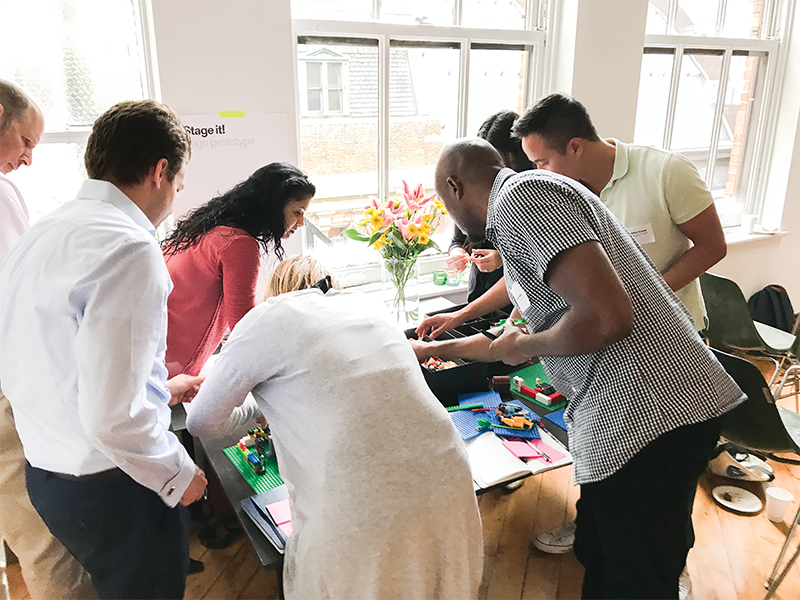One-On-One WITH LISA LINDSTRÖM
Doberman Founder and CEO Lisa Lindström describes the state of female entrepreneurship in business today, transformation, and how the next generation of innovators might help.
Social impact, innovation and female entrepreneurship are some of the most prominent themes in business right now—and Lisa Lindström—CEO and Founder of design and innovation firm Doberman—is one of the leaders paving the way for change. In light of her participation as a speaker at SACCNY’s upcoming Executive Women’s Conference, she took a moment to share her thoughts on the business landscape today. Here, she reflects on female entrepreneurship, digital media, how millennials and Generation Z are set to affect organizations, and what needs to happen to encourage positive transformation.

How do you see digital media evolving today?
I see businesses taking in the potential of digital media and digitalization to really solve some of the world’s most pressing issues. Once you start to connect big topics (for example, loneliness or climate change) with all of the technical development and data that is out there, you can really create the products and services that can help accelerate the changes we need. That is enormously helpful, and it also means taking on a lot of responsibility.
Considering that, how do you see the intersection between digital media and positive social impact right now?
I see various industries collaborating with one another more frequently to encourage positive social impact, but I would love to see even more people coming together—from all of the different sectors—to inspire change. Bringing together the best technologists and companies, along with politicians, decision makers, and policymakers could be the key to transformation. But these kinds of silos are not traditionally known for working well together. For example, politicians might not know of certain opportunities or challenges because they are not as tech-savvy as they could be. So, it is important to consider: In what way could we have more intersections, collaborations or interfaces between policy decision makers, companies, and the technology community? Because that is what will then help accelerate social impact even more.
Millennials and Generation Z are known for being cause-oriented, and for seeking out businesses that have some type of positive social impact. How do you think that will affect businesses moving forward?
For several years now, we have been talking about the fight for talent. That will increase because of this. It will become a must to really reflect on your offering as a business, and you will really need to prove that what you promise is a part of your business model. Millennials will not be loyal otherwise.
Millennials and Gen Z are cause-oriented, and they work for society at heart. The company they choose to work for has in turn become a platform from which to promote a cause. They wonder, “Can I make the change I would like to see here?” or “Should I start my own company?”
As organizations, you will be borrowing the talent. That will of course put even more pressure on companies to reflect on how they can best contribute. That is a great development, but it is also challenging. You need to not only reflect on your business model, but also on your leadership—and on how fast you can move.
Millennials and Gen Z are changing business in many ways. How do you envision them changing the business landscape from a gender standpoint?
I meet a lot of younger men who are feminists, and that in itself will affect a lot. When feminism is a topic shared among everyone, it is not just a woman’s issue anymore. These types of values are critical to millennials. If you are not tackling these issues in a serious way, they will not find you attractive as a company.
Photo Credit: Emil Nordin


